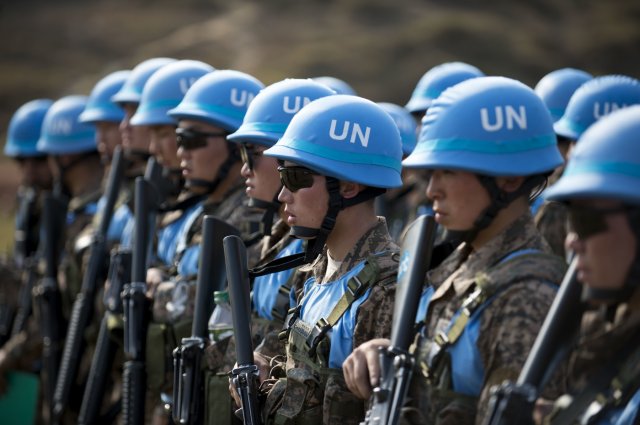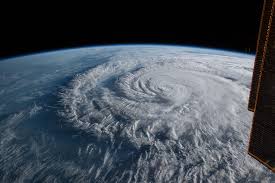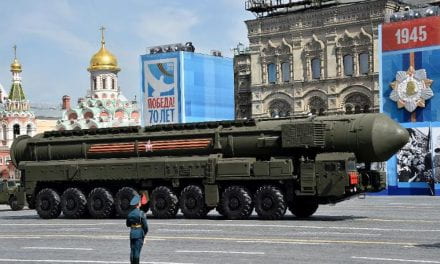By: Allison Guerra*
The United Nations (UN) goal is to increase cooperation amongst countries, something that is accomplished by promoting peace, improving human rights, and increasing social and development programs. As a way to promote peace, the UN established peacekeeping forces in 1948, protecting civilians during periods of instability. According to the United Nations, “Peacekeepers provide security and the political and peacebuilding support to help countries make the difficult, early transition from conflict to peace.” [1] A key defining word is security, encompassing the protection of human rights and the protection of civilians from harm. However, if an organization built on supporting peace and stability within a country cannot act according to its defining features, then how can it be trusted to make lawful decisions. By having no accountability in the peacekeeping forces because it is left to the troops home country’s jurisdiction, the United Nations is unable to enforce proper conduct. Two cases of peacekeeping failure are seen in Haiti: first, the introduction of cholera and second, the sexual abuse of children. Focusing on peacekeeping missions in Haiti, institutional failure amongst the blue helmets is evident as more harm than good was brought to the people.
In 2010, the United Nations sent a team of Nepalese blue helmets to Haiti in response to a devastating earthquake. Since the earthquake destroyed much infrastructure and shattered its already fragile economy, Haiti needed assistance from the international community to aid in its redevelopment. Instead of assisting the country, the peacekeepers reintroduced cholera, a disease eradicated in Haiti over 100 years ago. [2] Due to a lack of troop vetting, the Nepalese soldiers who were carrying strains of cholera, entered Haiti and killed thousands, sickening even more. A report from Yale Law School and School of Public Health found a high correlation between lack of sanitation and dumping of sewage at the Peacekeeping basecamp near the Artibonite river, the largest river in Haiti, as the cause of the rapid spread of the disease. [3] Immediately after the disease was introduced to the water supply, it rapidly spread throughout the country and caused as much devastation as the earthquake itself.
With clear evidence pointing to the blue helmets as the cause of the epidemic, people wanted the United Nations to take responsibility. However, it took the UN over six years to finally release a report acknowledging the cause of the outbreak being from somewhere in South Asia and not a native strain to the Caribbean. [4] Even then, the United Nations deemed the source of the cholera outbreak as no longer relevant and therefore did not accept responsibility, showing a lack of accountability as a leading organization. According to the official report “the Haiti cholera outbreak was caused by the confluence of circumstances… and was not the fault of, or deliberate action of, a group or individual,” ending any thought that the UN would acknowledge its responsibility. [5] Shifting the blame, removing accountability, and denying responsibility of this devastating epidemic lessens the effectiveness of the UN peacekeeping missions and calls for necessary reforms to the structure of the organization.
Cholera was not the only horrific consequence of peacekeeping missions in Haiti. Sexual abuse and exploitation has been increasing amongst blue helmets, especially those in Haiti, as a recent UN report found, tarnishing the reputability of the organization. UN peacekeepers have been in Haiti since 2004, following the exile of President Bertrand Aristide during an armed conflict. Blue helmets were sent to the country to ensure a secure and stable environment, reform the police, aid with restoration of rule of law, and promote and protect human rights. [6] Troops sent to the United Nations Stabilization Mission in Haiti were primarily from Sri Lanka, Uruguay, and Pakistan. Between 2004 and 2016, “150 allegations of abuse and exploitation by UN peacekeepers and other personnel were reported in Haiti alone… out of the worldwide total of nearly 2,000.” [7] For a single country, during such a short period of time, the numbers of sexual abuse in Haiti is astronomical. Reports of rape have included peacekeepers from a variety of backgrounds, however, the largest was a sex ring that exploited nine children by at least 134 Sri Lankans for four years. [8] A recent report from the Associated Press details children as young as 12 years old being systematically raped by peacekeepers. [9] Accounts of rape continue to grow as pregnant women ask for financial assistance from their rapists and as children come forward about being paid for sex in order to survive.
The violation of basic human rights is clear; however, once again, the United Nations is doing little to compensate those who have been harmed. Since accountability is left to the troops’ home country’s jurisdiction, only a small number of the sexual abuse and exploitation cases have ended with the prosecuted in jail. In the Sri Lankan sex ring case, 114 out of the 134 offenders were removed from Haiti and sent home, a rare occurrence since typically little is done. [10] With the UN stating that there is a zero-tolerance policy for sexual misconduct while blue helmets are able to rape with little to no punishment from their home country, an impasse of accountability is created. Accountability is continuously shifted from the organization to the jurisdiction of each sovereign country and vice versa without either taking ownership for the sexual abuse and exploitation. Along with a “zero-tolerance” policy of sexual assault, the UN forbids sexual relations with prostitutes and persons under 18; however, there is a lack of enforcement because once in the host country, blue helmets only respond to their home country and not the UN. [11]
Pressure has been increasing for the United Nations to create a more encompassing protocol to end sexual violence enacted by peacekeepers, especially from US President Trump. US Ambassador to the UN Nikki Haley has requested a review of all UN peacekeeping missions in an attempt to uncover more misconduct in missions. [12] Members of the US Senate met in 2016 to discuss viable options for the UN following the sexual abuse accusations in the Central African Republic. [13] As Trump continues to propose a substantial decrease to US foreign aid and diplomacy, the UN must quickly create reforms to keep the US, its largest donor, happy. The name, “United Nations,” is becoming damaged as more sexual harassment comes to light, embarrassing member states. Due to the widespread accounts of rape and misconduct throughout peacekeeping missions, it is vital for the UN to develop a solution that puts pressure on countries sending troops to properly enforce human rights laws.
Secretary General Antonio Guterres is suggesting that all United Nations personnel write down that they understand the UN’s policies for sexual abuse and exploitation, making a more contractual agreement. [14] Furthermore, he intends to develop new rules to prevent abuse by peacekeepers, hopefully ensuring the safety of the host country civilians. It is difficult for the United Nations to interfere in allegation investigations since they lack the authority; however, increasing the amount of troops vetted could lessen the amount of allegations. Another tactic proposed, but not yet approved by the General Assembly, is to cut off financial payments to troops involved in investigations, dissuading peacekeepers from involving themselves due to maintaining financial security. Finally, a trust fund has been established for survivors, compensating them for a small amount of the vast hardship they endured. [15]
The United Nations is an organization devoted to promoting peace and stability worldwide. However, Haiti’s cholera outbreak and cases of rape and sexual exploitation continuously contradict the very foundation of the organization. Although the peacekeepers in Haiti taught the police force, helped stabilize the government, and potentially accomplished their other tasks, the underlying destruction of the abuse hinders the overall benefits of the peacekeepers. If missions continue along this vein, UN member countries will continue to move against peacekeeping missions that could potentially aid countries in turmoil. Many of the reforms stated by Mr. Guterres must be enacted as a first step; however, more importantly, the UN must take accountability for their actions. Without taking responsibility for the actions of UN peacekeepers, the United Nations peacekeeping program will continue to bring destruction instead of what they should bring: peace.
[1] United Nations, “What Is Peacekeeping? United Nations Peacekeeping,” United Nations Peacekeeping, 2016. Web. 18 Apr. 2017. http://www.un.org/en/peacekeeping/operations/peacekeeping.shtml.
[2] Robert Siegel, “Haiti’s Cholera Outbreak Tied To Nepalese U.N. Peacekeepers,” NPR, 12 Aug. 2013, Web. 18 Apr. 2017, http://www.npr.org/templates/story/story.php?storyId=211434286.
[3] Transnational Development Clinic, Jerome N. Frank Legal Services Organization Yale Law School, Global Health Justice Partnership of the Yale Law School and the Yale School of Public Health, and Association Haitïenne De Droit De L’Environnment. “Peacekeeping without Accountability,” 2013: n. pag. Print.
[4] Camila Domonoske, “U.N. Admits Role In Haiti Cholera Outbreak That Has Killed Thousands,” NPR, 18 Aug. 2016, Web. 18 Apr. 2017, http://www.npr.org/sections/thetwo-way/2016/08/18/490468640/u-n-admits-role-in-haiti-cholera-outbreak-that-has-killed-thousands.
[5] Alejando Cravioto, “Final Report of the Independent Panel of Experts on the Cholera Outbreak in Haiti,” United Nations, 2016, Web, http://www.un.org/News/dh/infocus/haiti/UN-cholera-report-final.pdf.
[6] United Nations, “MINUSTAH Mandate – United Nations Stabilization Mission in Haiti,” United Nations, 2016. Web. 18 Apr. 2017.
[7] Paisley Dodds, “AP Exclusive: UN Child Sex Ring Left Victims but No Arrests,” AP News, 12 Apr. 2017, Web. 18 Apr. 2017, https://apnews.com/e6ebc331460345c5abd4f57d77f535c1.
[8] Ibid.
[9] “AP Exclusive: UN Child Sex Ring Left Victims but No Arrests”
[10] Ibid.
[11] United Nations, “Conduct and Discipline. United Nations Peacekeeping,” United Nations, 2016, Web. 18 Apr. 2017, http://www.un.org/en/peacekeeping/issues/cdu.shtml.
[12] Somini Sengupta, “U.N. Plans Reforms to Stamp Out Sexual Abuse by Peacekeepers,” The New York Times, 08 Mar. 2017, Web. 18 Apr. 2017, https://www.nytimes.com/2017/03/08/world/americas/united-nations-antonio-guterres-peackeepers.html.
[13] Somini Sengupta, “U.S. Senators Threaten U.N. Over Sex Abuse by Peacekeepers,” The New York Times, 13 Apr. 2016, Web. 18 Apr. 2017, https://www.nytimes.com/2016/04/14/world/africa/us-senators-threaten-un-over-sex-abuse-by-peacekeepers.html.
[14] “U.N. Plans Reforms to Stamp Out Sexual Abuse by Peacekeepers.”
[15] Ibid.
*Disclaimer: The content contained in the following material is the sole ownership of the author and does not reflect the views of the Towson University Journal of International Affairs nor Towson University in any respect whatsoever








success for all of you..